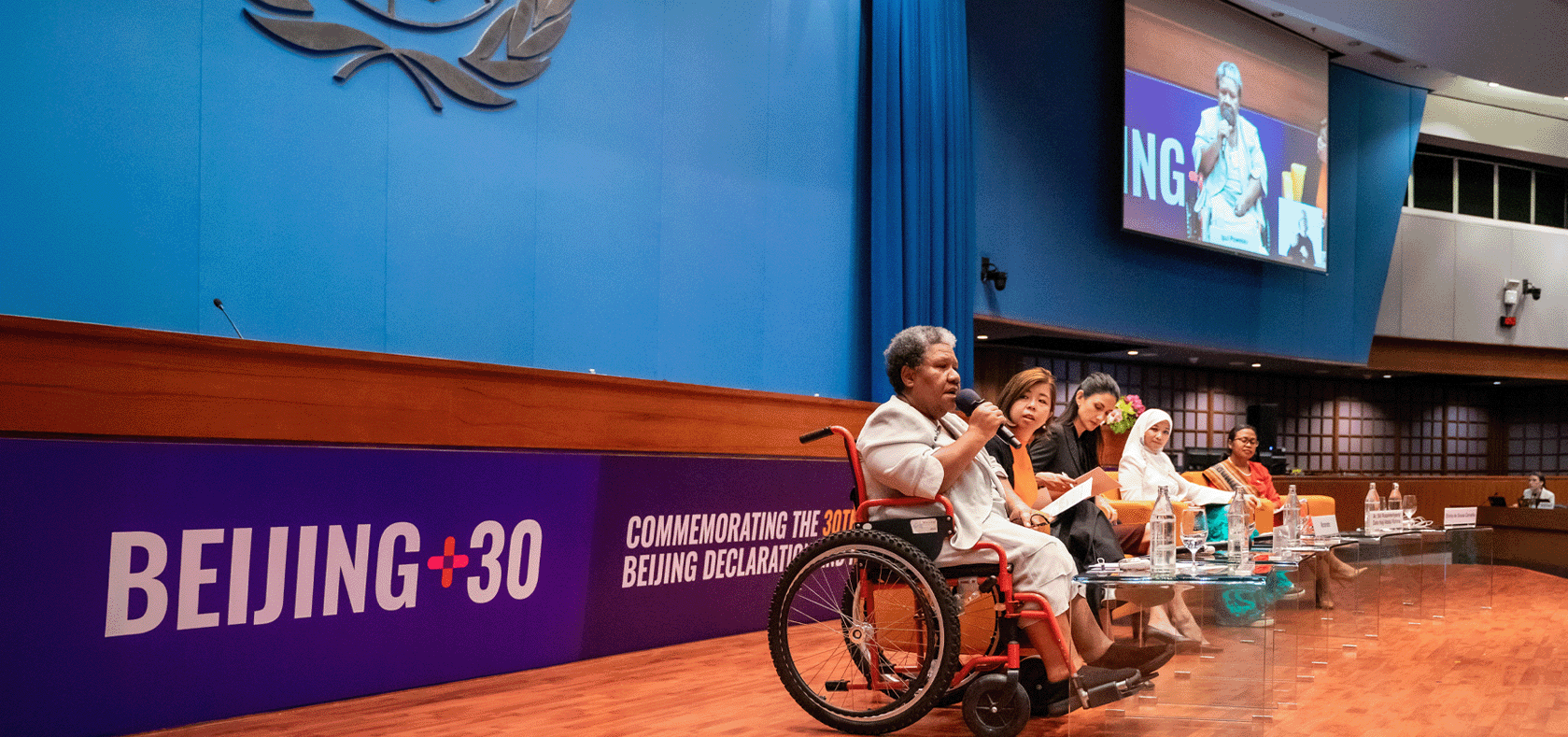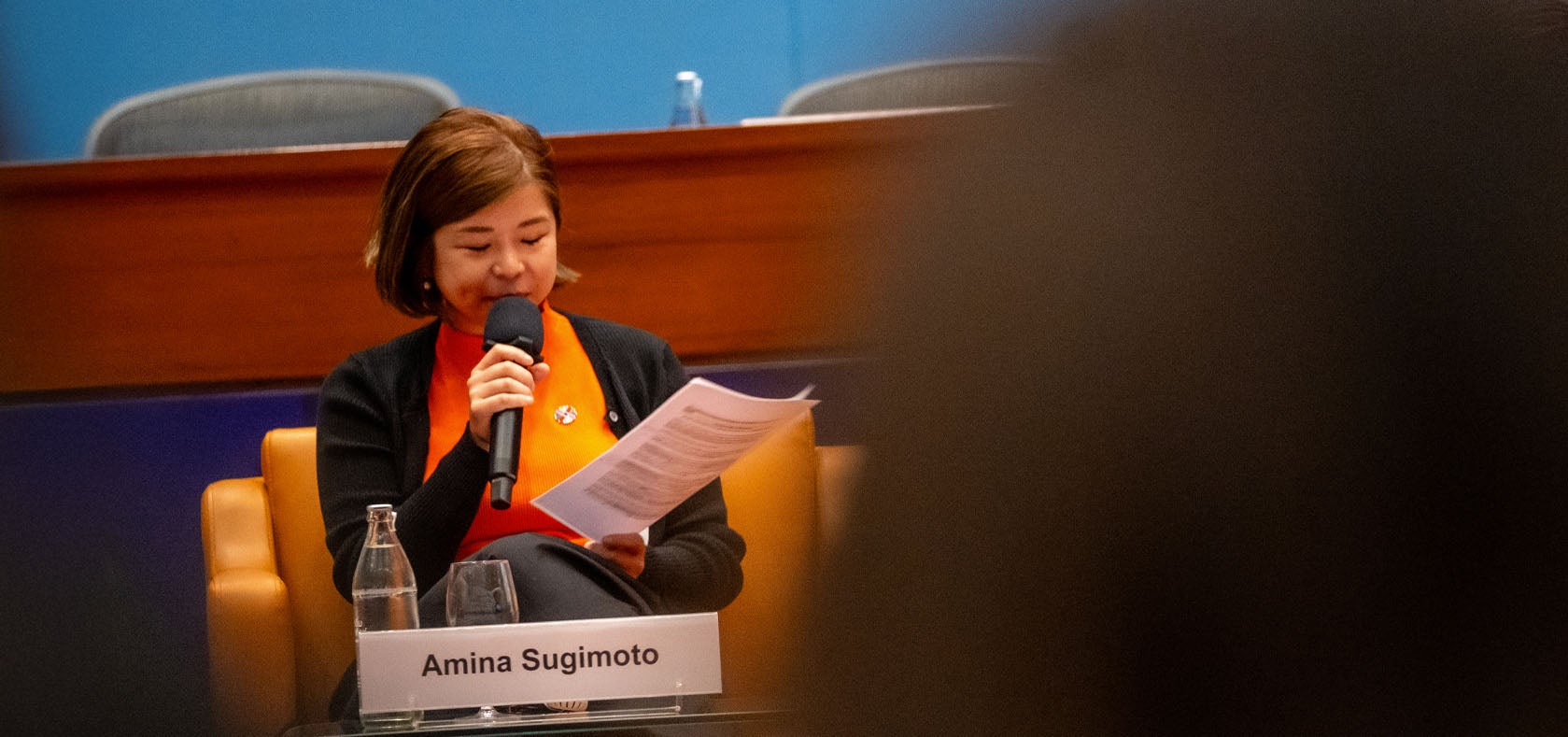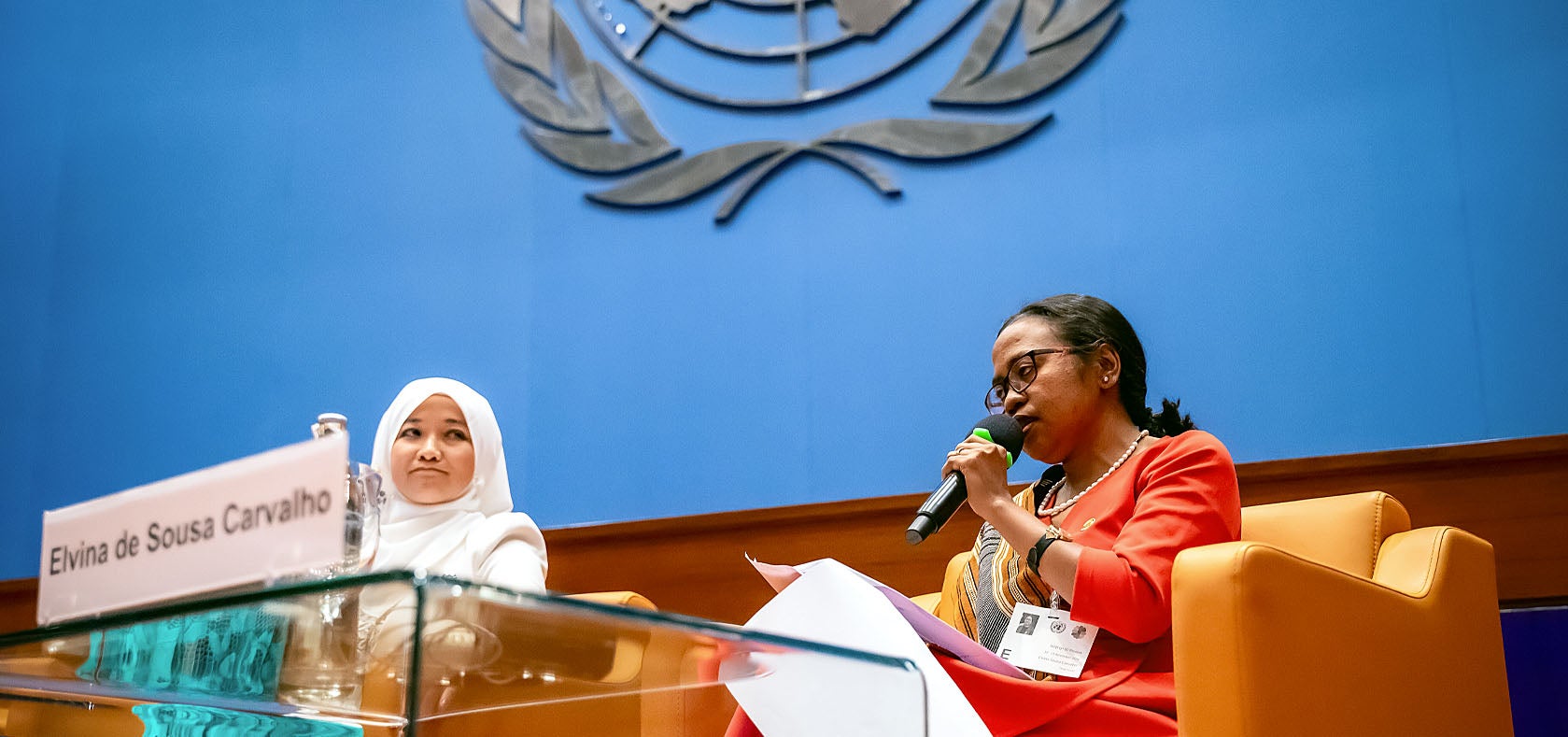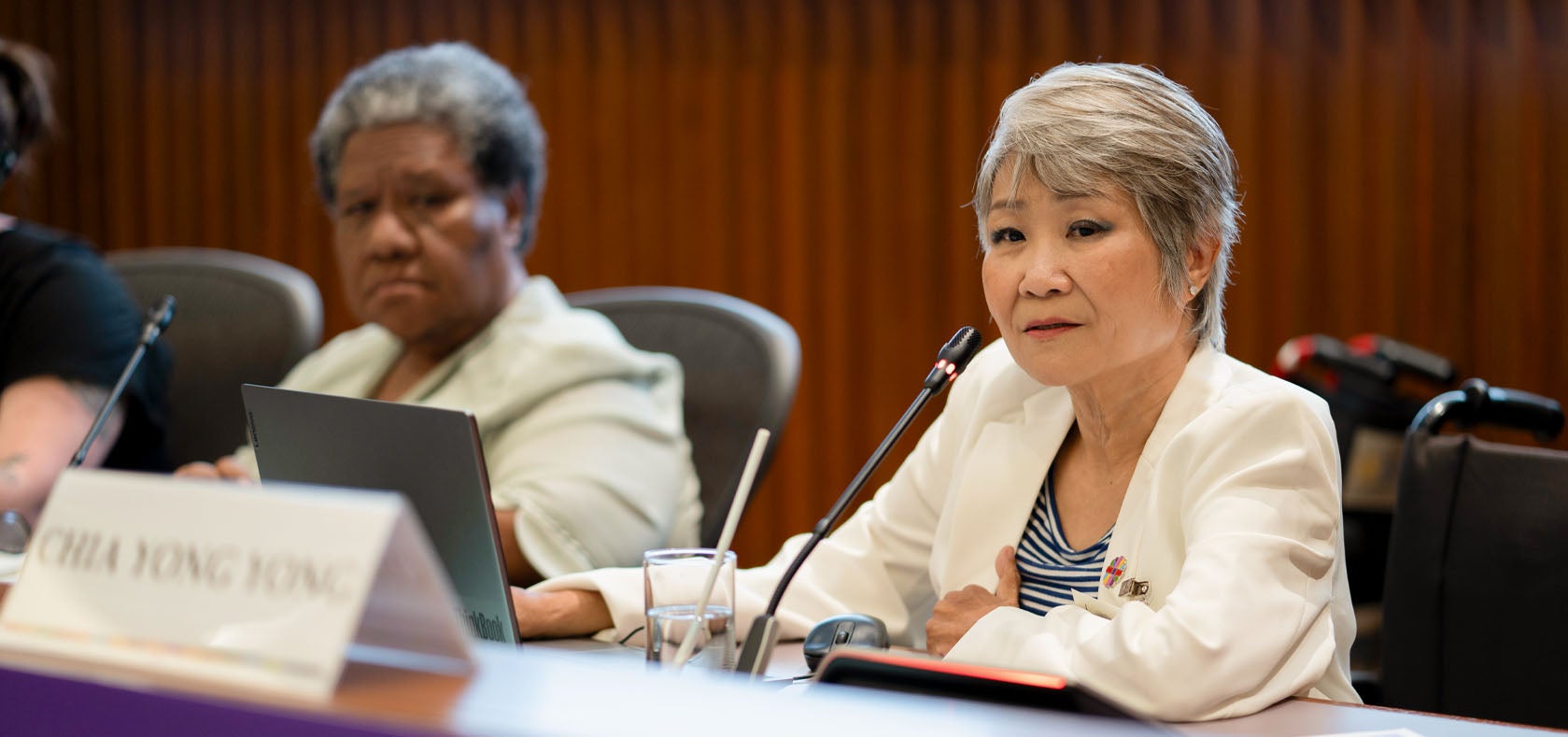Change-makers take the spotlight in conference on women’s rights in Asia-Pacific
Date:
Author: John Krich

Bangkok, Thailand — Speeches by government ministers, United Nations officials and other dignitaries had started the day one proceedings of the Asia-Pacific Ministerial Conference on the Beijing 30+ Review. Day two belonged to the remarkable women fighting in the trenches, asserting women’s equality in the face of persistent social bias and hostility — the title of the programme called them, “The Change-makers.”
The three-day review conference in Bangkok aimed to assess progress and challenges to women’s rights in the region since the 1995 Beijing Declaration and Platform for Action. The more than 1,000 attendees included government and United Nations officials, women and youth activists, and others.
Four group discussions on major areas of concern to Asia-Pacific women dominated today’s programme: economic empowerment, work and entrepreneurship; increasing participation in the political and government leadership; responding to and preventing violence against women and girls during “an era of uncertainty”; and the mega-trends and gender-transformative actions that can accelerate key social transitions.
Dozens of national representatives pledged a succession of equality-oriented actions while expert panelists showcased their passions.
Anna Lee Fos-Tuvera of the Philippines spoke of organizing trade unions for the region’s estimated 60 million domestic workers.

Somewhat on the opposite end of the spectrum was Dr. Amina Sugimoto, who was raised in East Africa and returned to Japan to found Fermata, Inc., which invests around the globe in the burgeoning field known as “femtech.” These innovative new forms of deep biome testing can track a woman’s health and entire life cycle – potentially of specific benefit to Japan, with its low birth rate and aging population. Sugimoto estimated the potential value of the technology at USD 1 trillion.
But Sugimoto recounted how few women can be seen in corporate boardrooms in Japan, and how often businessmen will only pay attention when her male business partner makes a pitch.
But much of today belonged to valiant efforts and testimony of more marginalized constituencies.

A remarkable success story arose from Timor-Leste. Elvina de Sousa Carvalho, Secretary of State for Equality, began joining and leading youth and women’s organizations out of high school before becoming one of the country’s youngest female parliamentarians. Thirty-eight per cent of the 65 seats in the Timor-Leste parliament are occupied by women, exceeding the established quota of 30 per cent women. The parliament is led by its first woman speaker and an all-women, six-member secretariat. Such influence, said a proud Sousa Carvalho, will soon lead to the passage of a new law to increase wages and social protections for domestic workers.
But much of today belonged to the valiant efforts and testimony of more marginalized constituencies.
Pratima Gurung of Nepal is the outspoken General Secretary of the Indigenous Persons with Disabilities Global Network. She put the number of these twice-stigmatized people – once as a woman and second as a person with a disability -- at 28 million in Asia. In her lifelong struggle for recognition, not just from “colonialist” and male-dominated governments but the feminist movement itself, Gurung helped write an addendum to the Beijing Declaration that asserted the rights of indigenous women and girls with disabilities (like some in the Nepal delegation who had lost limbs in farm accidents) and demanded an 11-point programme of protection and advancement for those who consider themselves “custodians of Mother Earth since time immemorial”.

Also “hearing the cries of young girls with disabilities”, veteran campaigner Ipul Powaseu of Papua New Guinea is an inspirational force in a wheelchair necessitated by childhood polio. She estimated that other diseases, such as malaria and diabetes, have left nearly a million out of her nation’s 11 million people with some disabilities. This led her to leave a think-tank position in 2009 to become volunteer leader of a movement that created 22 subnational organizations for such women and got the country to ratify an international convention on disabilities in 2013. With many girls with disabilities still isolated, harassed and without access to education in rural areas, Powaseu keeps speaking out.
It was appropriate that she was joined on the dais today by Chia Yong Yong, a lawyer and feminist advocate who became Singapore’s first legislator in a wheelchair in 2014 – “the first in 59 years!” she decried. She said that even the most noble laws passed in the city-state are “just aspirational without the proper mindset among the public”.
Today’s most remarkable session ended with rallying cries from blind youth advocate Laxmi Nepal. The woman from Nepal said she would remain “filled with hope for a world in which women are known for what we can do and not what we can’t do”.